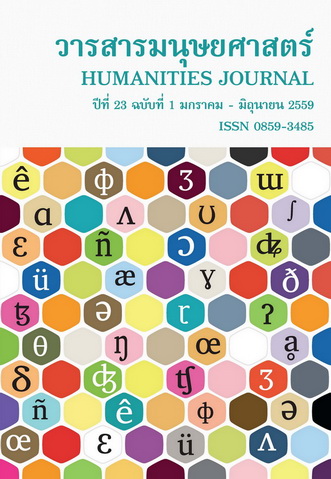A Comparative Corpus Analysis of the Use of the Present Perfect by Thai EFL Learners and by Native Speakers
Main Article Content
Abstract
Present Perfect (PP) in English has drawn attention from researchers for decades. The use of the tense remains uncertain especially in a country like Thailand where English is taught as a foreign language. The present study makes an effort to investigate the use of present perfect among Thai EFL learners. This corpus-based study compares and contrasts how Thai EFL learners and native speakers of English construct present perfect in their writings in terms of co-occurrence patterns of indefinite time adverbials (‘just,’ ‘already,’ ‘never,’ and ‘ever’). The data were gathered from the Thai Learner English Corpus (TLEC) and the British National Corpus (BNC) representing native speaker variation. Antconc (version 3.4.3) was used to generate and provide the data for this study. The results revealed that the uses of ‘just,’ ‘already,’ ‘never,’ and ‘ever’ with the present perfect by Thai EFL learners were very limited compared with native speakers’ texts and with the absence of context in their production, connection between past and present was rarely realized. On the other hand, native speakers were found to use more diverse patterns and the data showed the sense of strong connections between past and present. As far as the native-speaker norms are concerned, the findings of this study can lead to development materials for teaching the present perfect.
Article Details
Section
Research Articles


